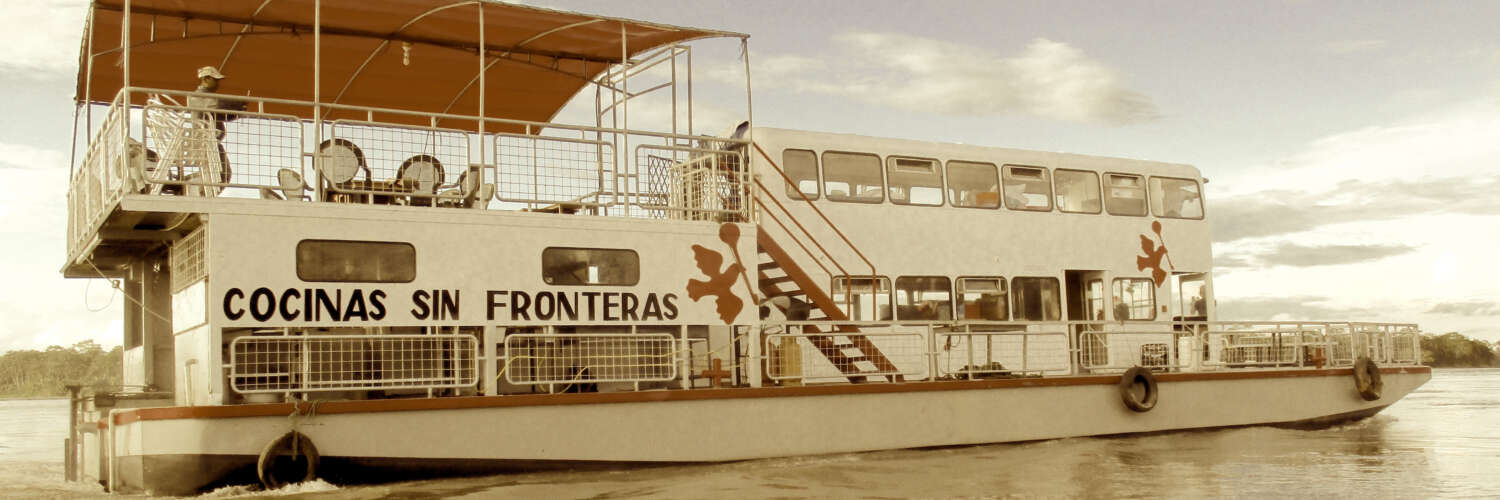The tripoint region of Ecuador, Colombia and Peru is home to one of the most species-rich rainforests on Earth. The release of the regional oil fields for exploitation by the government of Ecuador has led to large-scale logging, leaving the indigenous population with little left.
This deforestation of the rainforest and the interventions in the sensitive ecosystem during oil production has destroyed their hunting grounds and with that their basis for subsistence. They are forced to find work in the city where there are barely any possibilities for training or education. The traditional structures of indigenous society are at breaking point. This situation is aggravated by the conflicts between the different clans and tribes which are intensified by the fact that the habitat available to these peoples now is a mere 5% of its original surface.
The region’s potential lies in the unique biodiversity, the indigenous culture as well as scattered offers for tourists. Associations of indigenous communities and the ministry of tourism have tried for some years to create new sources of income from these assets to benefit the indigenous population. This is where the Cuisine sans frontières project comes in.
Csf provides practical training to members of the indigenous communities on board a school ship. Movement and traffic along the Rio Napo is almost exclusively conducted on the river as the region’s main artery.
The gastronomic courses take place on the Csf ship four to five times a year during one month. Circa 15 students are trained in hospitality, creating a gastro-touristic programme, communications with guests, the basics of waitressing and so forth. This course enables the participants to either create their own services for the up-and-coming eco-tourism industry or find work in one of the cities in the region.
This project is made possible by the generous financial support offered by the Foundation Beatrice-Caterina Zai (2020 – 2021), the Temperatio Foundation (2019 – 2021), the Maya Behn-Eschenburg Foundation (2019), the Corymbo Foundation (2017 and 2018) and the Swiss Foundation for Solidarity in Tourism (2017).





